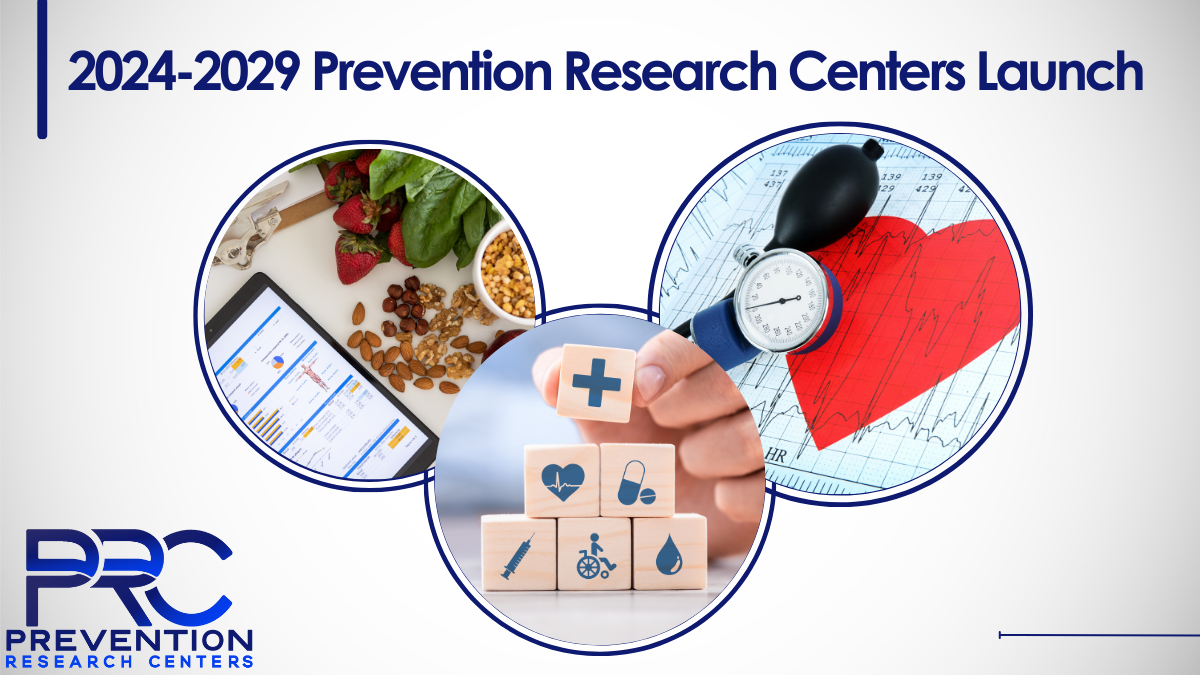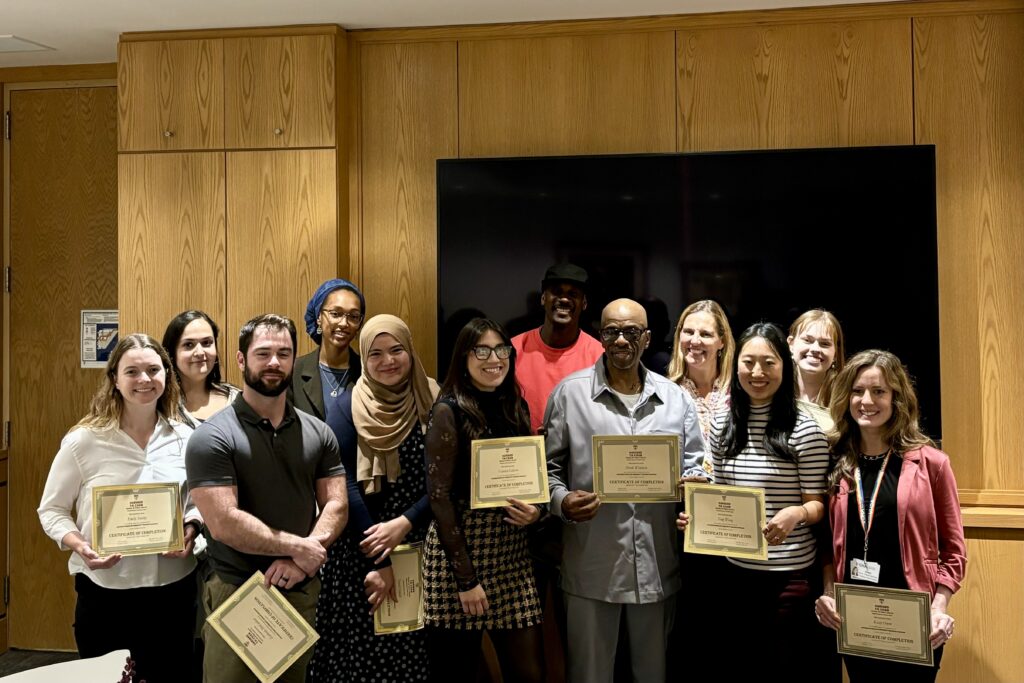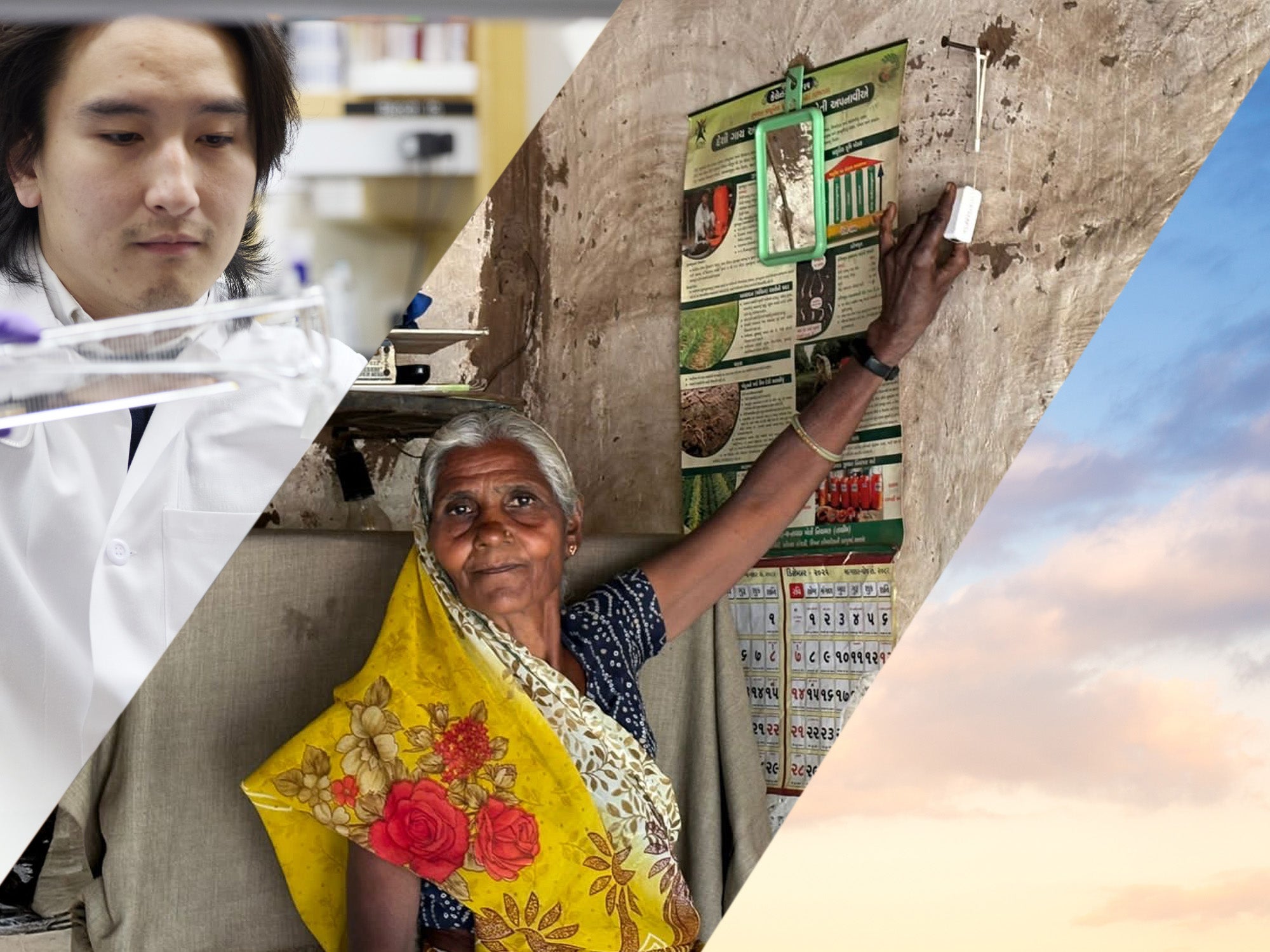2024: Year in Review

The HPRC team is excited to share this reflection on our successes in 2024. From wrapping up key research projects to starting new ones, to new peer-reviewed research and resources focused on advancing healthy eating, active living, and healthy weight to virtual engagement opportunities across a range of topics, to continuing to engage with our community through partnering with a Boston-based non-profit and through our annual Leaders in Health training program, it was another banner year for us! Read on to learn more about our 2024 highlights, categorized within the four key areas in which our Center is focused.
Collaborate with Partners to Identify Evidence-Based Interventions
New Prevention Research Center Funding Cycle 2024-2029
The HPRC team is also excited to announce our participation in the new cycle of Centers for Disease Control and Prevention (CDC): Prevention Research Center grantees! We’ll be working to address gaps in translating evidence-based healthful eating and physical activity interventions.
For our core research project, we will be working to address significant gaps in translating evidence-based healthful eating and physical activity interventions into practice and key health promotion and disease prevention objectives in Healthy People 2030. Our implementation research project focuses on improving healthful eating and physical activity behaviors (HEPA) among children (0-5 years) in early childhood education settings.
The CDC awards $20M to academic institutions nationwide for a new Prevention Research Centers funding cycle. In FY24, 20 PRCs were funded to conduct groundbreaking research in health promotion and preventing chronic diseases. These centers will work closely with communities to address the underlying causes of health disparities and turn scientific knowledge into public health practices to prevent chronic diseases. Learn more about the CDC Prevention Research Centers network.
Launch of the CalFresh Healthy Living-CHOICES Project
This year, we were excited to kick off a new project with partners at the California Department of Public Health’s (CDPH) CalFresh Healthy Living Program (CFHL) to create a California Learning Collaborative Partnership program to engage local health agencies in modeling the cost-effectiveness of strategies to promote healthy weight, healthy eating, and active living.
Using the CHOICES methods and microsimulation model, we will work to estimate key outcomes for selected strategies for each of the local health agencies. The project will also include capacity-building activities to increase the capacity of CDPH partners to understand and use cost-effectiveness analysis as a decision tool to inform planning and resource allocation. We will also be providing tailored technical assistance and training opportunities for local health agency teams on cost-effectiveness modeling and plan to co-author policy briefs and publications.
We’re excited to continue this work in 2025!
Promote Healthy Weight, Healthy Eating, & Active Living
Exploring the Cost-Effectiveness of Strategies to Improve Child Health in Massachusetts and Boston, MA
This year, we completed the fifth and final year of the Massachusetts-CHOICES Project, which was focused on translating project findings to key audiences to inform future project planning and prioritization. As a CDC-funded Prevention Research Center from 2019 – 2024, this was our Core Research Project.
The purpose of Massachusetts-CHOICES Project was to work collaboratively with community partners, the Massachusetts Department of Public Health and the Boston Public Health Commission, to evaluate the cost-effectiveness of strategies to promote healthy eating, active living, and prevent excess weight gain. This work built off the CHOICES Project.
Through this project, both teams strengthened partnerships with state and local organizations, including early education and care programs, public schools, afterschool programs, and more. The use of cost-effectiveness analysis allowed the teams to align their goals with available resources, prioritizing strategies that are both effective and equitable. Using cost-effectiveness analysis is crucial for prioritizing prevention policies and programs that offer good value for money, ultimately creating healthier and more equitable communities.
As a key part of this work, we were excited to publish two strategy portfolios which highlight the policies and programs that we modeled with each team:
- Massachusetts Department of Public Health strategy portfolio
- Boston Public Health Commission strategy portfolio
See all the research briefs from the Massachusetts-CHOICES Project:
- Massachusetts: Movement Breaks in the Classroom
- Massachusetts: Water Dispensers in Schools
- Boston, MA: Creating Healthier Afterschool Environments (OSNAP)
- Boston, MA: Movement Breaks in the Classroom
- Boston, MA: Home Visits to Reduce Screen Time
- Boston, MA: More Movement Program in Early Child Care Settings
- Boston, MA: Reducing Screen Time in Early Child Care Settings
Offer Resources & Training Opportunities
New Resources
This year, we shared a variety of new resources and peer-reviewed publications that align with our Center’s Priority Areas (healthy eating, physical activity, sugary drinks, drinking water access and intake, and unhealthy food and beverage marketing).
This year, the CHOICES Project was excited to publish two new reports on the CHOICES website, which detail findings from modeling a sugary drink excise tax in Massachusetts and analyze the impact on both the state as a whole and on the Boston population.
The CHOICES Community of Practice also hosted a coffee chat on Thursday, September 26th focused on the progressive health impacts of a sugary drink excise tax, highlighting recent findings from modeling a statewide tax in Massachusetts. We had two wonderful guest speakers who both shared important insight: Sara Bleich, Professor of Public Health Policy at the Harvard T.H. Chan School of Public Health and inaugural Vice Provost for Special Projects at Harvard University and our director, Steve Gortmaker, Professor of the Practice of Health Sociology and Director and Co-Principal Investigator of the CHOICES Project at the Harvard T.H. Chan School of Public Health.
Read the Massachusetts report | Read the Boston, MA report | Watch the coffee chat recording
The HPRC team recently updated the OSNAP website and associated materials and resources to better reflect today’s best practices and guidelines for nutrition and physical activity. Updated for both content and design, these resources are designed to help afterschool programs thrive and assist afterschool providers in offering children opportunities to be physically active and eat healthy during afterschool time.
Explore the OSNAP site | Browse the OSNAP resource library | Create a free MyOSNAP account
- Massachusetts: Movement Breaks in the Classroom
- Massachusetts: Water Dispensers in Schools
- Boston, MA: Creating Healthier Afterschool Environments (OSNAP)
- Boston, MA: Movement Breaks in the Classroom
- Boston, MA: Home Visits to Reduce Screen Time
- Boston, MA: More Movement Program in Early Child Care Settings
- Boston, MA: Reducing Screen Time in Early Child Care Settings
- January: Exploring the Health Equity Benefits of Sugary Drink Excise Taxes
- February: Engaging Community Partners in Health Improvement Planning
- March: State & Local Policies for Incorporating Added-Sugar Warning Labels on Restaurant Menus
- April: Advancing Equitable Access to Improved Nutrition: Evidence and Policy
- May: Enhancing Health Communications to Empower Your Outreach
- August: Putting the Eggs in All the Right Baskets: Tips for Braiding & Layering Funds to Support Public Health Programs
- September: Investing in a Healthier Future: How a Sugary Drink Excise Tax Could Improve Health & Health Equity in Massachusetts
- October: Creating Healthier Spaces for Kids: Promoting Healthy Eating, Physical Activity, & Health Equity in Out-of-School Time
- November: Cost-Effective Strategies to Create Healthier Environments: A Walkthrough of the CHOICES National Action Kit 2.0
Our monthly coffee chats are tailored for public health professionals dedicated to promoting healthy weight, healthy eating, and active living. These sessions serve as valuable opportunities to learn and connect with others.
- ➡️📅 Mark your calendars: Join us for our monthly coffee chat series, typically scheduled on the fourth Thursday of each month from 1:00 – 1:50pm ET.
- ☕️💡 Got ideas brewing? Please share your ideas and suggestions for future CHOICES Community of Practice coffee chat topics. Your input helps shape our upcoming discussions!
- 📧👥 Invite a friend! Consider inviting a colleague or partner to join our coffee chats. Share our library of past coffee chats so they can get a taste!
A Sugar-Sweetened Beverage Excise Tax in California: Projected Benefits for Population Obesity and Health Equity. (Lee MM, Barrett JL, Kenney EL, Gouck J, Whetstone L, McCulloch SM, Cradock AL, Long MW, Ward ZJ, Rohrer B, Williams DR, Gortmaker SL, Am J Prev Med, January 2024)
Cost-Effectiveness of Calorie Labeling at Large Fast-Food Chains Across the U.S. (Dupuis R, Block JP, Barrett JL, Long MW, Petimar J, Ward ZJ, Kenney EL, Musicus AA, Cannuscio CC, Williams DR, Bleich SN, Gortmaker SL, Am J Prev Med, January 2024)
Cost-effectiveness of Improved WIC Food Package for Preventing Childhood Obesity. (Kenney EL, Lee MM, Barrett JL, Ward ZJ, Long MW, Cradock AL, Williams DR, Gortmaker SL, Pediatrics, January 2024)
US drinking water quality: exposure risk profiles for seven legacy and emerging contaminants. (Levin R, Villanueva CM, Beene D, Cradock AL, Donat-Vargas C, Lewis J, Martinez-Morata I, Minovi D, Nigra AE, Olson ED, Schaider LA, Ward MH, Deziel NC, J Expo Sci Environ Epidemiol, January 2024)
An economic evaluation of strategies to ensure safer drinking water in the homes of families with young children in select United States locations. (Cradock AL, Barrett JL, Nink E, Wilking C, Prev Med Reports, February 2024)
Childhood Obesity Prevention — Focusing on Population-Level Interventions and Equity. (Gortmaker SL, Bleich SN, Williams DR, NEJM, February 2024)
Community partner coauthorship for increased implementation science impact: Strengthening capacity and engagement. (Lee RM, Torres CH, Daly JG, Thomas A, Hannon PA, Likumahuwa-Ackman S, Emmons KM, J Clin Transl Sci, September 2024)
Designing for data sharing: Considerations for advancing health equity in data management and dissemination. (Rabin BA, Smith JD, Dressler EV, Cohen DJ, Lee RM, Goodman MS, D’Angelo H, Norton WE, Oh AY, Transl Behav Med, September 2024)
Cost-effectiveness of a primary care-based Healthy Weight Clinic compared with usual care. (Sharifi M, Fiechtner LG, Barrett JL, O’Connor G, Perkins M, Reiner JF, Luo M, Taveras EM, Gortmaker SL, Obesity, September 2024)
Association of continuous BMI with health-related quality of life in the United States by age and sex. (Ward ZJ, Dupuis R, Long MW, Gortmaker SL, Obesity (Silver Spring), October 2024 – Epub ahead of print)
Cost-effectiveness of mandating calorie labels on prepared foods in supermarkets. (Grummon AH, Barrett JL, Block JP, McCulloch S, Bolton A, Dupuis R, Petimar J, Gortmaker SL, Am J Prev Med, 2024)
School-based nutrition education programs alone are not cost effective for preventing childhood obesity: a microsimulation study. (Kenney EL, Poole MK, McCulloch SM, Barrett JL, Tucker K, Ward ZJ, Gortmaker SL, Am J Clin Nutr, November 2024 – Epub ahead of print)
Build Capacity for Conducting Community-Engaged Research
Celebrating the 12th Leaders in Health 2024 Cohort
This fall, we held the 12th cohort of participants representing a broad range of organizations from throughout the state of Massachusetts. The program built the skills of 13 fantastic public health practitioners over the course of eight weeks. Projects focused on a range of topics from promoting physical activity and nutrition to addressing the challenges of homelessness, violence, and gambling. Participants engaged in bi-directional learning with a team of five Harvard Chan masters students committed to community-engaged research and practice.



